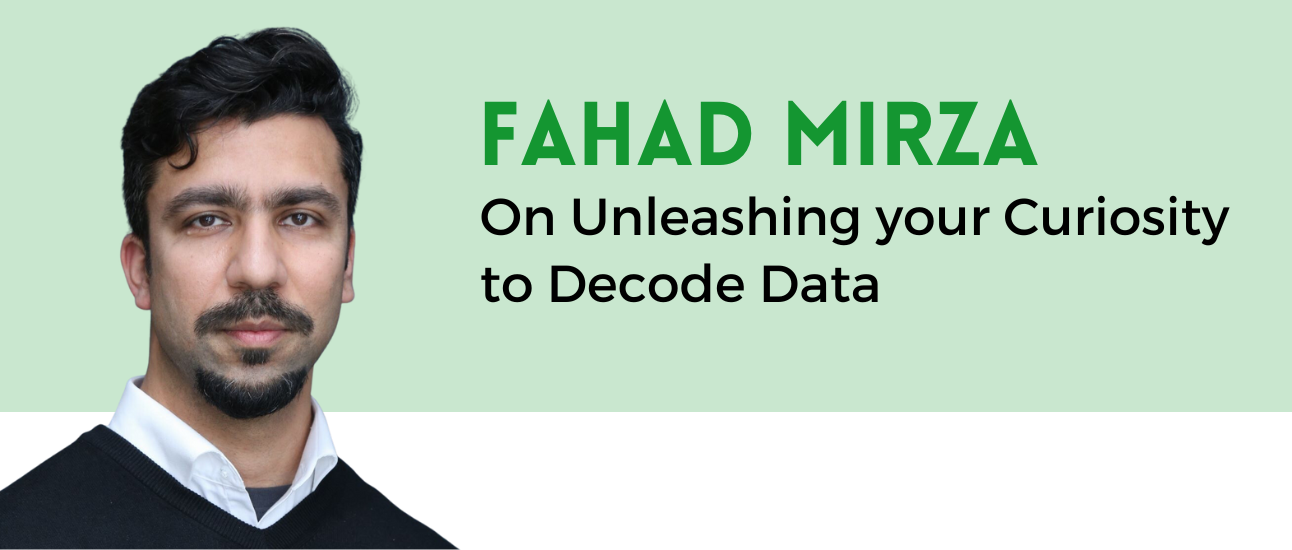11th May, 2023
Fahad Mirza: On Unleashing your Curiosity to Decode your Data

Fahad Mirza, an experienced Economist, Data Analyst, & Visualizer with experience in Public Expenditure Review of the Education Sector in Pakistan (World Bank), analysis and evaluation of training program funded by FCDO (for PSDF), and perception analysis for the Khyber Pakhtunkhwa Government on the Merged Areas Governance Project through Viamo.
Mirza is a strong believer in lifelong learning and disseminating knowledge. A graduate of Masters in Economics from LUMS, who likes working with Stata, ArcGIS, and Python programming software.
In an insightful discussion with atomcamp, Fahad delves into his educational background and how he shifted towards Data Science, telling us what a data scientist needs to kick start their career in Data Science.
First of all, please tell us about your educational background and how did you get into data analysis?
Thank you for having me here. It’s a bit of a long journey. I graduated from FAST with a Bachelor’s in Business Administration in 2010. I did not move into data initially and I started directly in construction and worked at the project management side for seven years but in between I felt I should move towards the scientific side of things. Because mostly people are not keen on going into the nitty gritty of data collection and understanding the impact it can make. And that is exactly why I wanted to move into data analytics.
I got an opportunity to work on the Anti-Human Trafficking Bill, which is truly an odd shift from construction, it allowed me to get into policy making. The bill was presented in 2018. From there on, when I worked in policy, I realized there is a lot of room to grow. So I wanted to explore options like public policy or economics in Pakistan. But the question was, what’s a good place for it? Because I could not afford a degree from abroad. I tried to apply for the Fulbright Scholarship and it did not work out for me. So then I got an opportunity to do a master’s from LUMS. And that’s where my data sense started to come in.
When you hear about economics in Pakistan, the first question people ask is about inflation or trade deficit. But surprisingly, it is nothing like that. After my master’s, my data abilities were polished as Econometrics and Data Analysis were a major part of my courses at LUMS.
That’s truly a long journey of getting into data science. Can you please tell us what was the first data set you remember working with? What was it about?
So my first data set was the MICS and the PSLM that were introduced during the courses at LUMS. This was my first-ever exposure to real-life data sets. They trained us on how to look at data and analyze it from different aspects.
And since you have come a long way since then what have you been working on this year and how is it interesting to you?
After graduating, I have been working on two major subjects.
One has been The Female Labor Force Participation and Mobility at the Center of Economic Research Pakistan (CERP) with Dr. Kate Vyborny and analyzing how nudging can help women participate more in the labor force. Recently, I left CERP and moved into the education sector, and started working at the World Bank. There, I am currently working on my second project which is the Public Expenditure Review of the Education Sector in Pakistan. I cannot discuss the details of it as it will be published later on but I have been working on this project rigorously these days.
I believe, if you look at the education sector itself, many policies are coming in but they are driven by the personal experiences of policymakers and not looking into how data is being collected and how analytically we can use it to make data-driven decisions.
If you would like to share any of your experience as a data scientist and any mistakes, if you have made and how did you recover from them? Because the data scientists out there have ifs and buts in their minds to break that monolith for them that despite mishaps, they can always come back.
When I was working at CERP, we would focus on working only through evidence and data. But our training throughout life is to add your perspective and not talk through evidence so most of the analysis I initially started doing had my mix of things on it. They would appreciate it but they would also question if it’s an angle that we can concretely talk about in that particular data we were working with. For example, what you are adding in the analysis is not reflected in the data and that would let me re-analyze things and present information through the lens of data.
Moving on, what do you think the future of big data looks like in Pakistan?
In Pakistan, there is a huge gap when it comes to data analysis. We don’t even have access to data to begin with. Although institutions are collecting data regularly, due to lack of access we are unable to go into the depth of things. So once this access starts to open up, there is huge potential. We can have policies for poverty reduction; even education also requires big data. The more information, the better policies are informed. But again, the problem is how well the data is collected because data is as strong as its weakest link. If data is giving the wrong picture, the results won’t be accurate either. Although big data is useful, the right way of collecting data is what is missing in Pakistan.
Last question to you, what is the one piece of advice that you would like to give to data scientists who are starting out or maybe those who want to explore the data science field and make it their full-time career? How should they start? And what skills should they develop?
So, I’m gonna be very sector specific when I talk about this because I’m working on the development side. When I started, I felt that curiosity is very important. Because you need to be curious. You need to be curious about understanding your data. What is it talking about? What’s behind the numbers you are looking at here? The ability to look beyond is the most important skill for data analysis.
Other than this, the ability to gather data and analyze it through data analysis tools like Python, Stata, and R. People should practice these tools more. For starters, they also should research more into how the upcoming Machine Learning and Artificial Intelligence are going to affect the process of data analysis. We need to deep dive into things, only then we would be able to gain insights from it.
Picture Courtesy: Fahad Mirza




